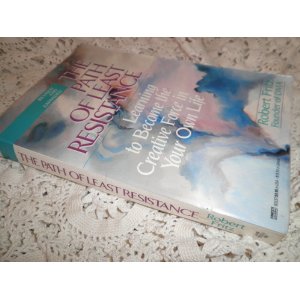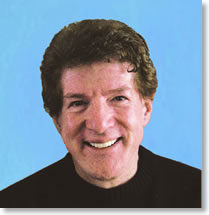Podcast: Play in new window | Download

Most people do not make a distinction between problem solving and creating. Because of that, all our politicians talk about are problems and how to solve them. However, the great leaders have a completely different orientation: creating desired outcomes. You can solve all of your problems and still not have what you want.
Problem solving is taking action to have something go away: the problem. Creating is taking action to have something come into being: the creation. After making this point at a Harvard-Vanguard’s Leadership Academy program that I teach, a Harvard professor came up to me afterwards and said, “I’m struggling with this idea about problem solving.” “What’s so hard about it?” I asked. “Nothing,” he said, honest man that he was, “I just hate it because I’ve been teaching problem solving for the last twenty years.”
The creative process is THE most successful process for accomplishment in history. It has created all of the arts, science, engineering, and the best things about our civilization. A leader that understands that job number 1 is to create rather than problem solve has enduring impact. It is not to say that problem solving doesn’t have its place occasionally. But if it is chronic, at best you can get rid of the current group of problems, only to find there is another group ready to drive the action. The great leaders lead us to something we want, not simply away from what we don’t want.
To paraphrase Dan,
Lead with your best creative self, and that won’t be a problem.
— Robert
 Robert Fritz is a composer, filmmaker and organizational consultant and the founder of Technologies For Creating® . He is the author of the international bestseller The Path of Least Resistance.
Robert Fritz is a composer, filmmaker and organizational consultant and the founder of Technologies For Creating® . He is the author of the international bestseller The Path of Least Resistance.
NOTE: Robert is holding a great program with Peter Senge, the author of the incredible book The Fifth Discipline this Friday in Boston. I’ll bet it will be AMAZING! It’s called “A Community of Creators.” Check here for program updates, directions, etc.

So easie it seemed Once found, which yet unfound, most would have thought Impossible…
Odd spelling, as this quote is from Milton’s “Paradise Lost” and is a beautiful expression of the Harvard professor’s struggle. It has been quoted in patent law, and where I first saw it, in a Wright brothers’ biography. The brothers spent the last years of their lives in litigation re: their flight patent because all the patent amounted to was coordinated movements of flaps, rudder, and aileron to be able to maintain steady flight.
Thank you Dan for this new to me insight. Also, blessings to you and Jennifer this day – May 23 – to celebrate your 26th wedding anniversary. God bless you every day.
Creativity is also wonderful because it allows for finding new opportunities that avoid current constraints. So often people are so limited in their vision they can’t imagine options that would be much better. I see curiosity as a key for creativity http://engineering.curiouscatblog.net/2011/10/28/encouraging-curiosity-in-kids/